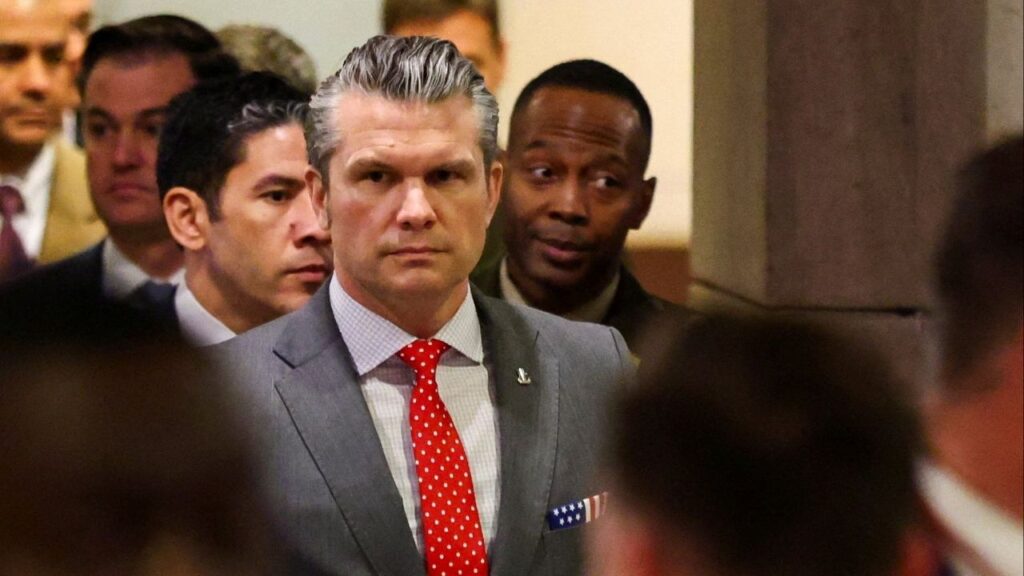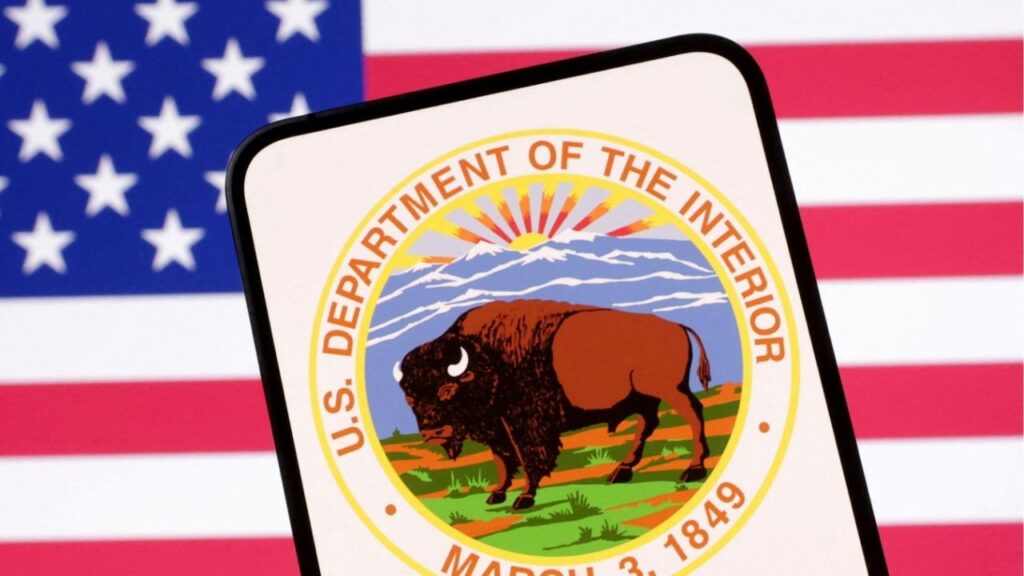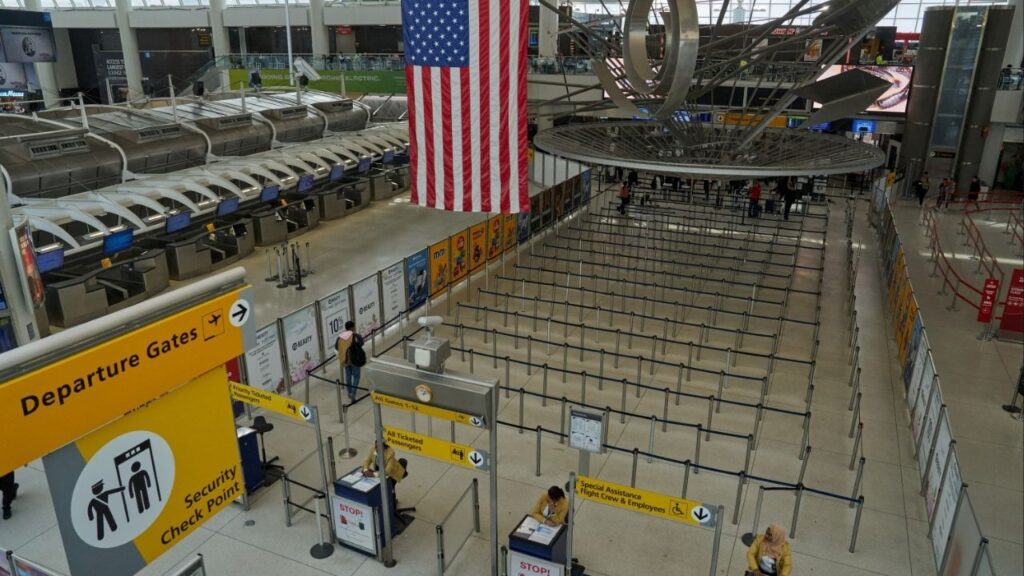Share
CAPE CANAVERAL, Fla. — Americans prefer a space program that focuses on potential asteroid impacts, scientific research and using robots to explore the cosmos over sending humans back to the moon or on to Mars, a poll shows.
The poll by The Associated Press-NORC Center for Public Affairs Research, released Thursday, one month before the 50th anniversary of the Apollo 11 moon landing, lists asteroid and comet monitoring as the No. 1 desired objective for the U.S. space program. About two-thirds of Americans call that very or extremely important, and about a combined 9 in 10 say it’s at least moderately important.
Neil Armstrong and Buzz Aldrin on July 20, 1969, became the first humans to walk on another celestial body. In all, 12 NASA astronauts stepped on the moon.
Jan Dizard, 78, a retired environmental studies professor living in Chico, California, acknowledges there’s more to learn on the moon and it would be “miraculous” to send astronauts to Mars. But now’s not the time, he stressed.
“There are all kinds of other things, not the least of which is climate change, that deserve our attention,” Dizard told the AP. “This other stuff can wait.”
After asteroid and comet monitoring, scientific research to expand knowledge of Earth and the rest of the solar system and universe came next on the list of Americans’ space priorities — about 6 in 10 said that was very or extremely important. Close to half said the same about sending robotic probes, rather than astronauts, to explore space, and about 4 in 10 said the same about continued funding of the International Space Station.
Trump Wants Space Force as New Military Service
Searching for life on other planets came in fifth with 34% rating it at least very important, followed by 27% for human Mars expeditions and 23% for crewed moonshots.
In a dead heat for last place among the nine listed goals: setting up permanent human residences on other planets, with 21% ranking it as a very high priority, and establishing a U.S. military presence in space with 19%. While other goals were considered at least moderately important by majorities of Americans, about half called a military presence and space colonies unimportant.
President Donald Trump, who wants to create a Space Force as a new military service, said at a rally formally kicking off his reelection campaign this week that, if he wins a second term, the country will “lay the foundation” for landing astronauts on Mars.
That came after a confusing tweet from Trump in which he said that NASA “should NOT be talking about going to the Moon” and instead focus on “much bigger things” including “Mars (of which the Moon is a part).” NASA administrator Jim Bridenstine later explained that the moon can be used as a “waypoint” for Mars access.
For all of the money we are spending, NASA should NOT be talking about going to the Moon – We did that 50 years ago. They should be focused on the much bigger things we are doing, including Mars (of which the Moon is a part), Defense and Science!
— Donald J. Trump (@realDonaldTrump) June 7, 2019
Toni Dewey, 71, a retired clerical worker in Wilmington, North Carolina, said space exploration should benefit life on Earth and the explorers should be machines versus humans.
“It would cost a lot of money to send somebody to Mars,” she said, “and we have roads and bridges that need repaired here.”
As for the moon, Dewey noted, “We’ve been there.”

NASA Aiming for Water Ice-Rich Lunar South Pole by 2024
But Alan Curtis, 47, of Pocatello, Idaho, considers moon and Mars trips a top priority, especially if the U.S. is to remain a world leader in space. Compared with its feats of the 1960s and 1970s, the U.S. space program is now a second thought, he said.
Abdul Lotiff, 28, a retail security company manager in Mason City, Iowa, also favors a return to the moon. He sees economic benefits there, with the resulting new tech spilling into areas outside the space business. In addition, he said, if and when Earth becomes overpopulated, the moon could serve as a springboard for humanity’s expansion into space.
The survey asked Americans to directly choose between the moon and Mars for exploration by U.S. astronaut. The red planet was the winner by about double: 37% compared with 18%. However, 43% said neither destination was a priority.
For Americans under 45 — born after NASA’s Apollo moonshots — Mars came out on top by an even larger margin: 50% prefer a Mars trip, versus 17% for the moon. A third said neither should be a priority.
For those 45 and older, 52% said neither Mars nor the moon should be a priority as a human destination. Of that age bracket, 26% preferred sending astronauts to Mars and 19% to the moon.
As for the White House’s deadline of returning astronauts to the moon within five years — NASA is aiming for the water ice-rich lunar south pole by 2024 — about 4 in 10 Americans favored the plan, versus 2 in 10 against. The remainder had no strong opinion either way.
The AP-NORC poll of 1,137 adults was conducted May 17-20 using a sample drawn from NORC’s probability-based AmeriSpeak Panel, which is designed to be representative of the U.S. population. The margin of sampling error for all respondents is plus or minus 4.1 percentage points.




















